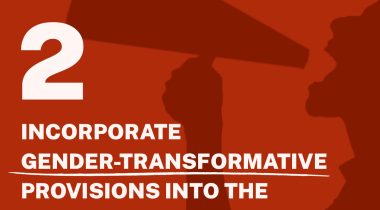
Nick Shaxson ■ Review: new book on Capital Flight from Africa

 Over at Uncounted, Alex Cobham (our Research Director) has written a review of a new tome for tax justice bookshelves: Capital flight from Africa: Causes, effects and policy issues, Ibi Ajayi & Léonce Ndikumana (eds.), 2015, Oxford University Press.
Over at Uncounted, Alex Cobham (our Research Director) has written a review of a new tome for tax justice bookshelves: Capital flight from Africa: Causes, effects and policy issues, Ibi Ajayi & Léonce Ndikumana (eds.), 2015, Oxford University Press.
His review begins:
“This new volume from the AERC (African Economic Research Consortium) is a very welcome milestone in scholarship on the complex and contested areas of capital flight and illicit financial flows (IFF). It is more than that however. It is a powerful book in terms of what it represents; what it contributes; and above all, of what it challenges. These are discussed in turn below, before consideration of a major policy opportunity that now beckons.”
We’d urge you to read the whole thing, but we’ll single out a couple of points:
Weeks’ sharp statement of findings arguably applies across the wider set of results too:
“the orthodox narrative that capital flight results from unsound macro policies [is reversed]. On the contrary, capital flight may force governments into policies that work against the majority of the population”
Which is a remarkably important finding. There’s much more in the review: from challenging traditional perceptions of corruption, to underlying the importance of tackling secrecy and fostering a compliance culture, and questions like this:
“In each of the following cases, for example, who is the corrupter and who the corrupted?
- An anonymous BVI company is awarded a cheap Zambian mining concession, then flips it to a UK-listed plc
- A Swiss bank holds a Nigerian resident’s overseas assets through a Jersey trust; nothing is reported to the Nigerian authorities
- A US-headquartered multinational shifts profit from Ghana to Luxembourg”
and observations like this:
“Although the ‘crazy ideas’ generated by civil society in the early 2000s now dominate the global policy agenda, there is a failure across the board – most obviously in terms of country-by-country reporting, and automatic exchange of tax information – to ensure that the benefits flow to developing countries as well as OECD members.”
And there is a summary of that “major policy opportunity that now beckons,” alongside a teaser for something potentially big that we’ll be publishing tomorrow.
But for now, we urge you strongly to read the review.
Related articles
The elephant in the room of business & human rights
UN submission: Tax justice and the financing of children’s right to education
14 July 2025
One-page policy briefs: ABC policy reforms and human rights in the UN tax convention
Tax justice pays dividends – fair corporate taxation grows jobs, shrinks inequality
UN Submission: A Roadmap for Eradicating Poverty Beyond Growth
A human rights economy: what it is and why we need it

Do it like a tax haven: deny 24,000 children an education to send 2 to school

Incorporate Gender-Transformative Provisions into the UN Tax Convention
Just Transition and Human Rights: Response to the call for input by the Office of the UN High Commissioner for Human Rights
13 January 2025


